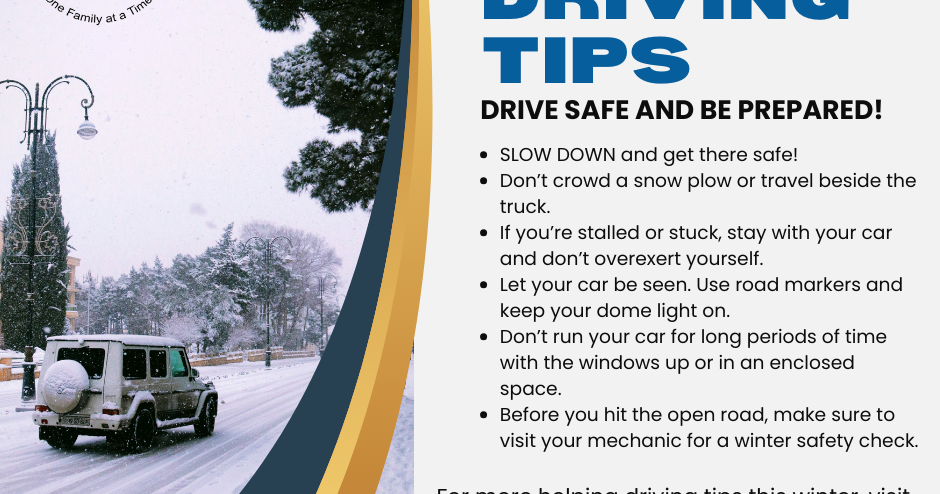This time of year often brings more road travel, and with it more opportunities to drive on slippery or snowy surfaces. The Southern 7 Health Department encourages travelers to follow some basic steps to keep you and your passengers safe on the road.
Probably the most basic bad weather travel tip is to just slow down. It is more difficult to control or stop your vehicle on a slippery or snowy surface. According to the National Highway Traffic Safety Administration, in 2022, approximately 153,620 police officers reported traffic crashes that occurred when there was snow or sleet at the time of the crash. On the road, increase the distance behind you enough to have enough time to stop for vehicles in front of you.
Don't crowd a snowplow or travel alongside the truck. Snow plows move slowly, make wide turns, stop often, straddle lanes, and frequently leave the road. If you find yourself behind a snowplow, stay far enough behind it and be careful if you pass the plow.
If you are stopped or stranded in winter weather, stay focused on yourself and your passengers, your car and your surroundings. Stay with your car and don't overexert yourself.
Let your car be seen. Place light markers on the antenna or windows and leave the interior dome light on.
Be aware of carbon monoxide poisoning. Make sure your exhaust is clear of snow and only operate your car sporadically, just long enough to stay warm. Do not operate your car for long periods of time with the windows open or in an enclosed space.
Before hitting the road, be sure to see your mechanic for a winter safety check that includes checking fluids, inspecting tires and wiper blades, and making sure your heater is working. Take care of any outstanding maintenance and resolve any known issues.
For other helpful driving tips this winter, visit www.nhtsa.gov/winter-driving-tips or call Southern 7 Health Department at 618-634-2297, ext. 22. 971123.


